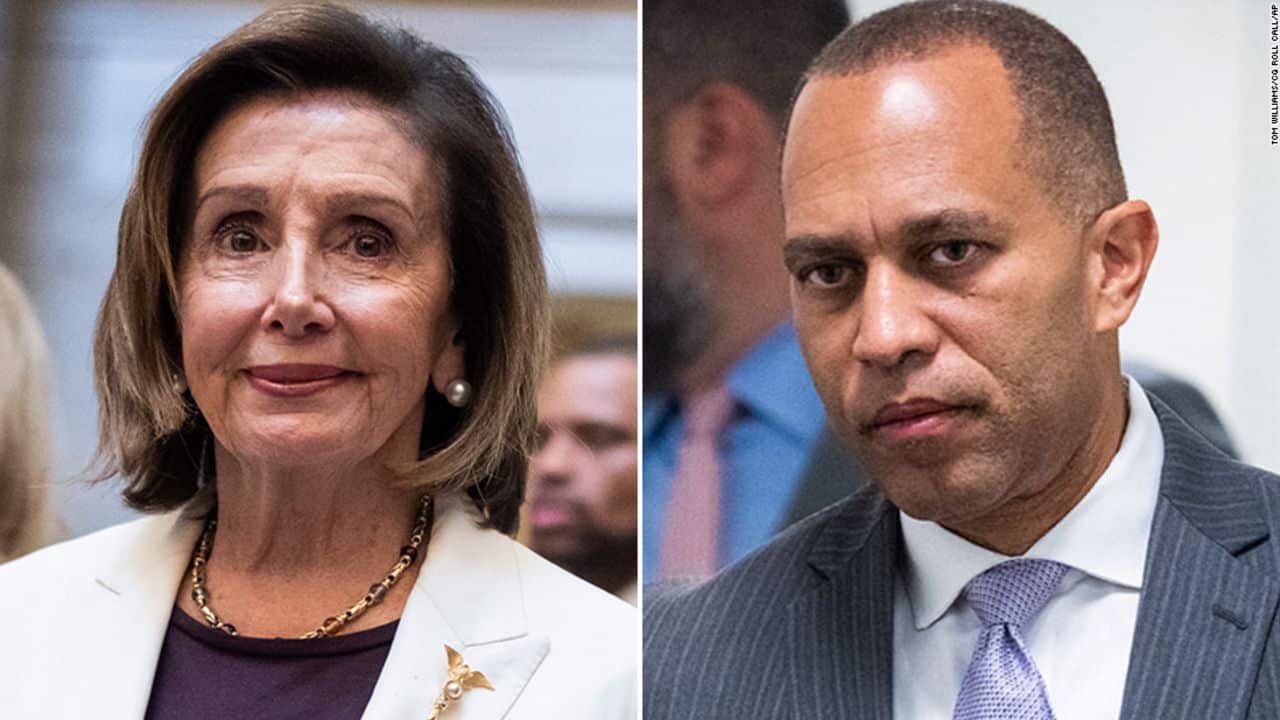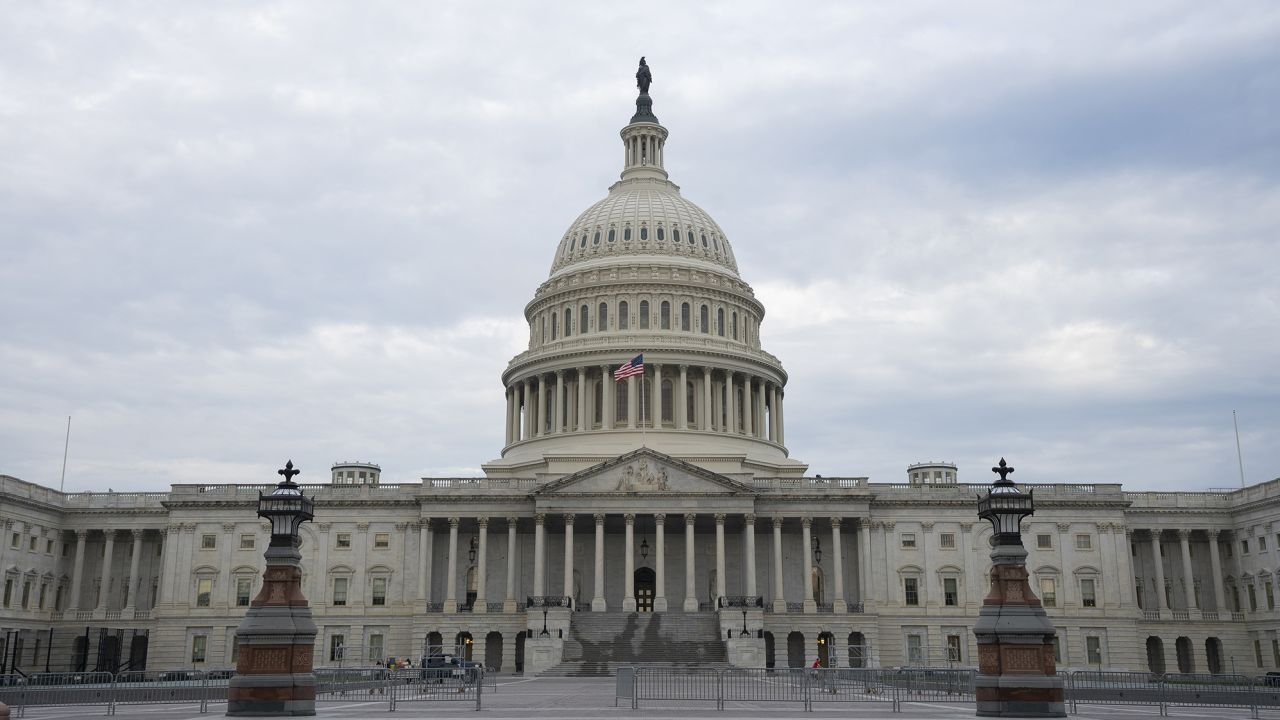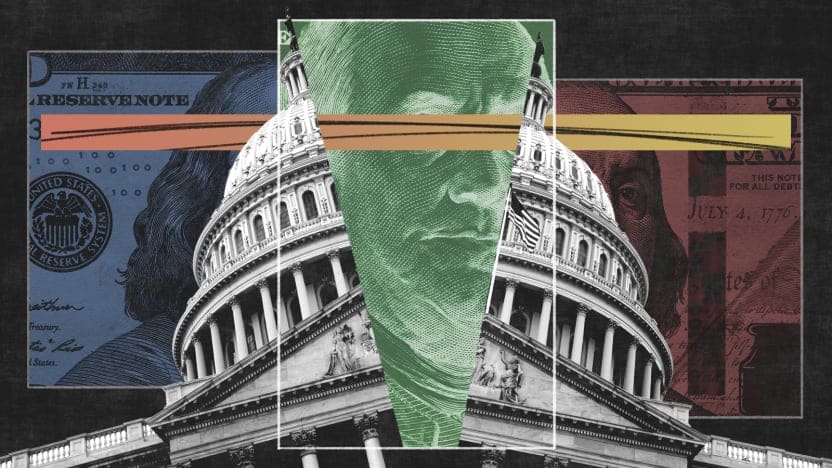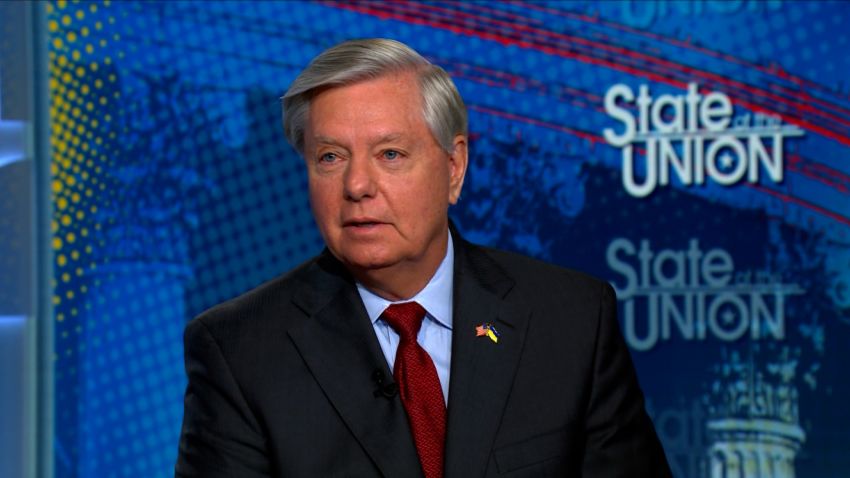Jeffries expected to succeed Pelosi as top House Democrat at leadership elections Wednesday

House Democrats are set to hold their leadership elections Wednesday, where current House caucus chair Hakeem Jeffries of New York is expected to succeed Nancy Pelosi as leader of the Democrats in the chamber next year, a historic move that will make him the first Black person to lead one of the two major parties in either chamber of Congress.
House to vote Wednesday on legislation to avert a railroad shutdown

The House on Wednesday will vote on legislation to avert a rail shutdown following a grave warning from President Joe Biden about the economic danger posed by congressional inaction.
Job Openings Report to Indicate Labor Market’s Tightness
This post was originally published on this siteZipRecruiter estimated that openings picked up through late November from the previous month, totaling around 10.7 million, essentially flat from September’s level.
China could have 1,500 nuclear warheads by 2035: Pentagon report

China’s stockpile of nuclear warheads has surpassed 400 in a fraction of the time previously estimated by the United States, a major Pentagon report revealed, with Beijing focusing on accelerating its nuclear expansion as it seeks to challenge the US as the world’s top super power.
Home prices cooling fastest in pandemic boomtowns

This post was originally published on this siteGrowth in home prices is slowing fastest in cities to which remote workers fled for lower costs of living during the coronavirus pandemic. The influx of workers from coastal communities intensified competition and drove up costs by more than 30 percent in some of these towns. But lately […]
Qatar Signs Limited Natural-Gas Supply Deal With Germany
This post was originally published on this siteThe agreement will help Berlin diversify supplies but falls far short of the amounts needed to replace missing Russian natural gas.
A soon-to-be divided Congress braces for the looming budget battle

With the Thanksgiving holiday and midterm elections (mostly) over, lawmakers in Washington are scrambling to put together a massive, year-end spending package by mid-December — or risk a government shutdown ahead of the new congressional term.
With the stakes high and time short, the pressure is on for this lame-duck session to move quickly in order to avert governmental disaster. But with Republicans poised to assume narrow control of the House come January, and internal schisms within the GOP threatening to derail any nascent legislative agenda, how, when, and what will actually be funded remains an open question for the time being. Here’s what you need to know:
What’s at risk?
The Federal Government is funded until Dec. 16, thanks to a short-term spending bill signed by President Biden this past September. That measure ensured the government could continue to operate at its current spending levels, but only until Congress passes additional spending bills — which it will have to do by the mid-December deadline, or the government will be forced to shut down.
If there is a government shutdown, tens of thousands of federal employees deemed “nonessential” will likely be furloughed, with various federal sites like national parks, museums, and monuments closed down as well. In 2018, the government shut down for a record-setting 35 days, as congressional Democrats blocked then-President Donald Trump’s efforts to fund his planned border wall between the United States and Mexico. This time around, lawmakers are split over including Democratic spending priorities, such as COVID-related funds and increased military aid to Ukraine, for the coming year.
What could happen?
As things stand, there are three possible outcomes:
Democrats and Republicans work together in the lame-duck session to pass a comprehensive 2023 spending bill before the Dec. 16 deadline expires.
Speaking with The Washington Post this month, Sen. Chris Van Hollen (D-Md.) put the odds at “better than 50-50 for getting an omnibus done by the middle of December.” Rep. Kay Granger (R-Texas) was similarly, if cautiously, optimistic, telling Politico that negotiations “are starting to get together,” and that she believed Congress would meet its mid-December deadline. While it’s possible that lawmakers will indeed pull it off, Hollen nevertheless cautioned that “I’m sure there are some House Republicans who want to play games and kick that process into early next year.” Which would mean…
Congress passes another stop-gap funding measure, known as a “continuing resolution,” to keep the government operating at its current funding levels.
This would avert a full shutdown, but throws Washington into an uncomfortable limbo status. Federal programs would see their funding levels stagnating, and future funding uncertain. While avoiding the chaos of a holiday-season shutdown entirely, a CR would only kick the spending can a little bit down the road — potentially for the next session of Congress to take up in full.
This poses a dilemma for House Republicans in particular: is it worth working on a CR now, and waiting until they take their extremely narrow majority in January to try for a full omnibus bill? While conventional wisdom might suggest they’d have better odds of having their funding priorities addressed once they take the House, intense intra-party feuding could make a GOP majority even more prone to stagnation once in power.
“As fractured as we are on a lot of other issues, there’s probably no better indicator of the fractures in our caucus than those on federal spending,” Rep. Steve Womack (R-Ark.) told Politico, while Rep. Don Beyer (D-Va.) was even more blunt in his assessment of a GOP House majority. “I don’t lie awake at night worrying about the bad legislation they are going to pass,” he told Politico. “Because I don’t think they’re going to pass it.”
If Congress can’t pass a CR in time, then…
The Federal Government shuts down for an unknown period of time.
Put simply, this would be extremely bad. The last federal shutdown cost the government billions in reduced GDP, as well as delayed spending and paychecks. If there were to be a shutdown now, it would come in the midst of — and exacerbate — a deep and prevailing sense of economic anxiety as well as a potential nationwide recession.
What to watch for:
While the rancorous infighting within the House GOP caucus has garnered the more explosive headlines, the ongoing feud between GOP Senate Minority Leader Mitch McConnell (R-Ky.) and Sen. Rick Scott (R-Fla.) could end up being the most consequential dynamic here. Scott, who recently lost his bid to unseat McCarthy as Senate Leader, has reportedly begun whipping support among his colleagues to push McConnell into blocking any spending deal until after Republicans assume the majority in the House. Speaking with The Hill, Scott explained that he was pushing for a delay in order to refocus Republicans on their legislative priorities at a time when they may have more leverage to do so: “We have to have a plan to deal with inflation, we’ve got to have a plan to deal with the border,” Scott said. “My goal is to organize Republicans to have our ideas, what we’re going to get done.”
However, not all of Scott’s colleagues agree that the party will be in a stronger position in the new year, even with their slim House majority. “Based on how it feels around here right [now], it seems more likely it’s going to be a CR but that does create some challenges down the road we would have to deal with next year,” GOP Senate Whip Jim Thune (R-Neb.) told The Hill.
Sens. Patrick J. Leahy (D-Vt.) and Richard C. Shelby (R-Ala.) will also play key roles in the coming weeks. As top negotiators for their respective parties in the appropriations process, both men are in their final days as senators, with each set to retire at the end of this session. The pair are reportedly angling to include significant earmarks for their respective constituencies before they step back for good.
Ultimately, a sign of how negotiations are going will be if — and how long — Congress passes a Continuing Resolution to avoid a shutdown by Dec. 16. A shorter CR would suggest that the two parties are relatively close on the bulk of the omnibus spending package’s major items, and simply need a few more days to negotiate details.
Senate to vote Tuesday on final passage of same-sex marriage bill

The Senate is set to vote Tuesday on final passage of a bipartisan bill to protect same-sex and interracial marriage.
Biden urges Congress to step in to avert a looming rail strike

President Biden on Monday urged Congress to step in and pass legislation to avert an economically damaging rail strike. In September, Biden and his administration brokered a compromise deal between 12 rail worker unions and rail companies, but workers at four of the 12 unions rejected that deal, teeing up a strike by all 12 unions as soon as Dec. 9.
“As a proud pro-labor president, I am reluctant to override the ratification procedures and the views of those who voted against the agreement,” Biden said in a statement. “But in this case — where the economic impact of a shutdown would hurt millions of other working people and families — I believe Congress must use its powers to adopt this deal.” A rail shutdown “would devastate our economy,” he said, and Congress should pass legislation to adopt the September deal “without any modifications or delay.”
House Speaker Nancy Pelosi (D-Calif.) responded that “this week, the House will take up a bill adopting the tentative agreement — with no poison pills or changes to the negotiated terms — and send it to the Senate.” What will happen in the evenly divided Senate is less clear, though business lobbying groups have been pushing lawmakers in both parties to intervene.
The deal brokered in September is a slight improvement for workers over an agreement recommended over the summer by a board of arbitrators. Eight of the unions agreed to the deal, which features a retroactive 24 percent pay raise between 2020 and 2024 and three new unpaid days a year for engineers and conductors to attend to routine medical appointments. But the four other unions were holding out for paid sick time and other measures to address unpredictable schedules and other quality-of-life concerns.
Biden is a staunch supporter of both unions and rail travel. Congress has stepped in to prevent rail spikes 18 times over the past 60 years, the White House noted earlier Monday, but Biden was only of only six senators to vote against a deal to end a bitter rail strike in 1992, The New York Times reports. “Though many members are likely to be upset by the prospect of congressional intervention, some union leaders may quietly prefer that intervention to come in December rather than January, when the House comes under Republican control and may be more likely to back the skimpier deal.”
Russia postpones nuclear arms control talks with US, State Department says

The Biden administration is blaming Russia for postponing meetings to discuss the nuclear arms agreement between the two countries that were scheduled to begin in Egypt on Tuesday, with a State Department spokesperson saying the decision was made “unilaterally” by Russia.
Tagged Nuclear ArmsRussiaUS State Department